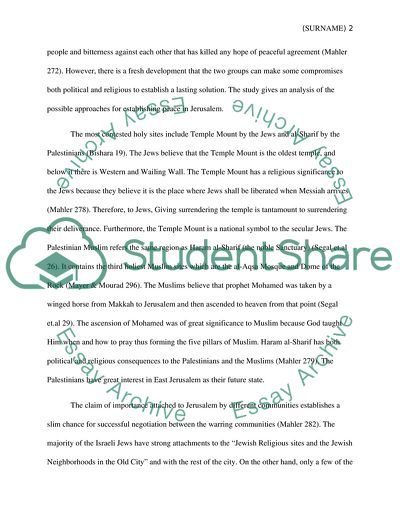Cite this document
(Issues in Jerusalem Essay Example | Topics and Well Written Essays - 2250 words, n.d.)
Issues in Jerusalem Essay Example | Topics and Well Written Essays - 2250 words. https://studentshare.org/politics/1827607-the-arab-israel
Issues in Jerusalem Essay Example | Topics and Well Written Essays - 2250 words. https://studentshare.org/politics/1827607-the-arab-israel
(Issues in Jerusalem Essay Example | Topics and Well Written Essays - 2250 Words)
Issues in Jerusalem Essay Example | Topics and Well Written Essays - 2250 Words. https://studentshare.org/politics/1827607-the-arab-israel.
Issues in Jerusalem Essay Example | Topics and Well Written Essays - 2250 Words. https://studentshare.org/politics/1827607-the-arab-israel.
“Issues in Jerusalem Essay Example | Topics and Well Written Essays - 2250 Words”. https://studentshare.org/politics/1827607-the-arab-israel.


